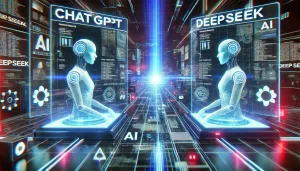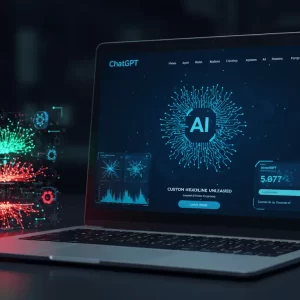A Game-Changer in AI Search
OpenAI has announced that ChatGPT no longer requires sign-in for search, making AI-powered information more accessible to the world. This move democratizes AI-driven search, allowing anyone to access high-quality responses without an account. You can now simply visit ChatGPT and start asking questions.
What This Means for the World
- More Open Access – Millions of users can now access AI-powered search without restrictions, making information more universally available.
- Challenge to Google’s Dominance – As AI search grows, it competes directly with traditional search engines like Google.
- Increased AI Adoption – With fewer barriers, more people will integrate AI tools into daily work, education, and research.
- Privacy Concerns – While users benefit from no sign-in, data collection policies remain a key discussion point.
Google’s $75 Billion Investment in AI Research
In response to AI-driven search advancements, Google has invested $75 billion in AI research, including projects in Gemini AI, DeepMind, and Bard. This aggressive funding reflects Google’s push to maintain its leadership in search and AI technologies, competing directly with OpenAI’s ChatGPT.
ChatGPT vs. DeepSeek: The AI Battle
Two major AI search models are now in play: ChatGPT and DeepSeek AI (DeepSeek), each with distinct strengths.
| Feature | ChatGPT | DeepSeek |
|---|---|---|
| Access | Open, no login required | Limited |
| Training Data | GPT-4 level AI, vast knowledge base | Focuses on open-source AI |
| Response Depth | Human-like responses, detailed explanations | Optimized for real-time search |
| Primary Use | Conversational AI, creative assistance | Efficient AI-powered search |
Both models show unique strengths, but competition will force each to improve rapidly.
Competition Drives Innovation: AI’s Bright Future
Historically, competition fuels the best innovations—from the space race to scientific breakthroughs. The same is happening in AI. As ChatGPT and DeepSeek battle for supremacy, we can expect:
- Faster AI improvements due to market rivalry.
- More accurate and helpful AI responses as both models refine their algorithms.
- Better user experience with AI becoming more personalized and interactive.
The Future: AI Models Fighting for the Best Results?
Imagine an environment where AI models compete against each other in real-time to provide the most accurate, relevant, and insightful responses. Instead of relying on a single AI engine, users could choose which model best fits their needs—like having Google, Bing, and ChatGPT all competing live for the best answer.
This kind of AI rivalry could push the industry toward an unprecedented level of technological growth, leading to hyper-optimized AI systems capable of real-time collaboration and competition.
Final Thoughts
The removal of sign-in requirements by ChatGPT is just the beginning. With Google’s massive AI investments and DeepSeek’s rise, the AI search landscape is evolving fast. As AI models compete and refine themselves, the world stands to gain the most from this battle.
🔗 Sources:








